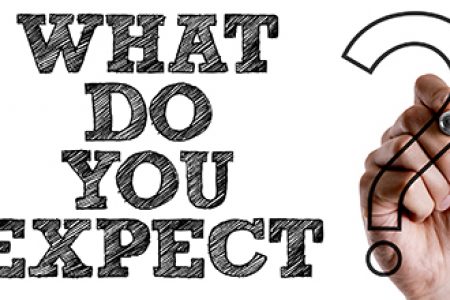Be pandemic prepared: let's make lifestyle part of our society's DNA
Undeniably, the coronavirus has had a huge impact on our lives over the past two years. Moreover, the COVID-19 pandemic is a perfect illustration of the importance of prevention and of a healthy lifestyle...
... People who are more vulnerable due to an unhealthy lifestyle run a greater risk of a severe disease course after infection with COVID-19. So shouldn't encouraging healthy lifestyles then have been a pre-eminent part of the pandemic response? And how do we ensure that this knowledge is applied in policies about handling other possible pandemics in the future?
Originally published in Dutch on Lifestyle4Health
Not enough attention to lifestyle
It is a waste of resources that our current healthcare system invests more in treating diseases than in preventing them. Promoting a healthy lifestyle could have been much more central to the policy on combating the Covid-19 pandemic and its consequences. Was it really sensible to limit sports opportunities so much? In their measures to fight the spread of the virus, the decision-makers focused mainly on the effects on hospitals, but they should also have taken into account the (negative) effects the measures had on lifestyle.
For a more balanced approach, the government could have done more to emphasize the importance of a healthy lifestyle, by encouraging people to get enough exercise, for example. Especially since obesity is a growing problem: as many as half of the Dutch population are overweight. And being overweight, and certainly being obese, puts you at a disadvantage when it comes to infections, with a greater risk of severe after-effects. The more overweight a person is, the higher the risk of a more severe disease course if that person is infected with COVID-19. This is because the person's immune system may be chronically overactive and may therefore may no longer respond effectively to a virus like COVID-19. However, the immune system can be positively influenced by lifestyle factors. So investing in a healthy lifestyle can be of great value during a pandemic like this one, and in relation to possible future viruses.
Support in the case of stress, anxiety, or worrying
In addition to physical health, mental health also has an important role to play in making people resilient. Many people experienced stress, anxiety, or worry during the Covid-19 crisis. They worried about their jobs or their health, experienced loneliness during lockdowns, and/or had questions about vaccinations. One undesirable effect, for example, was that some people did not get vaccinated because they were afraid of the side effects they might experience. Because although the Covid-19 vaccines are very effective, they do undeniably have side effects. Although these are usually mild, and pass quickly – a headache, fatigue, or a sore arm, for instance – for many people they are still a reason to avoid vaccination. It is important to know that some of these adverse events are not even caused by the vaccine itself. An international study shows that the nocebo effect – the negative counterpart of the placebo effect – plays an important role. The adverse reaction can also occur only because of the expectation that a vaccination may result into such an adverse reaction.
Nocebo & placebo effects
The placebo effect is well known by now. Much of the outcome revolves around factors other than the actual drug, such as the patient's confidence in the treatment, or the doctor-patient relationship. Placebo effects go beyond merely the pill itself. They are about trust based on positive expectations. We have long known from studies that placebo effects can be just as great as the effects of, say, antidepressants or painkillers. The nocebo effect, the opposite effect, is less well known, however, even though this effect was discovered about 30 years ago. People, even those in placebo control groups (who have not received any treatment), report exactly the symptoms listed on the package insert, or that they hear about in the media. So here we see adverse events being created by expectations of such adverse events. Thus, within a clinical trial, reading a package insert can lead to side effects in the placebo control group and can reduce participants' willingness to take medication. A recent study by Haas et al., which compared the adverse events experienced by participants in the control and COVID-19 vaccine groups in twelve studies, calculated that the nocebo effect was responsible for a substantial proportion of the adverse events. It is obviously important to inform people about possible side effects, but they should also be informed about the nocebo effect. To give a similar example, people also get headaches because they are afraid of thrombosis. If they know that those headaches may be caused by fear about these side effects, that is important information and can also provide relief.
Focus on the positive
Focusing only on the Covid-19 crisis and all its negative consequences can be extremely counterproductive. Prolonged focus on negative consequences impacts not only our state of mind, but also our physical responses, thus ultimately affecting health and disease. Conversely, positive expectations can lead to positive outcomes. What can we focus on to emerge healthier from this or future pandemics? Any crisis also leaves room to focus on what is really important in life, on what we ourselves can do to stay as healthy as possible, on enjoying the small things in life, and on working on connectedness and collaboration. A necessary step to counteract the "Covid-19 nocebo effect".
The above illustrates that it is enormously important to pay attention to the consequences that various measures may have. A lockdown has a huge impact on people's physical activity and mental state. In addition, it is very important how information is communicated. For example, when it comes to vaccines, emphasize how minimal the chances are of an adverse reaction. If people have doubts, offer them extra consultations with their GP, or set up counselling offices in community centres where people can get free advice and ask any questions they may be brooding over. Many people are put off by the sheer size of the official vaccination centres, and the impersonal letters from the government. On the other hand, they may have no objection to being vaccinated in a more local, small-scale location. Too little effort was invested in these aspects in the fight against Covid-19. It is also important to communicate about the importance of good eating, sufficient sleep, and healthy exercise (even a half-hour walk each day can make a big difference). Precisely during the pandemic, this was challenging for many people, and during lockdowns there was too little positive messaging about healthy lifestyle choices.
Investing more in a healthy lifestyle can prevent many negative consequences for physical and mental health. If we make lifestyle part of our society's DNA, we will be more resilient to possible future pandemics or large-scale health challenges.





